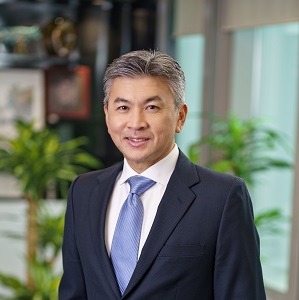
Last week, our Chief Executive Officer, Toh Seong Wah, spoke to Singapore International Energy Week (SIEW) to discuss how the company is adapting to meet the evolving needs of the National Electricity Market of Singapore (NEMS), which marks its 20th anniversary this year.
Additionally, he sheds light on how Energy Market Company (EMC) is supporting Singapore's ambitious energy transition goals.
1. How does your company view its role in supporting Singapore's efforts to transition towards net zero by 2050?
The EMC operates the wholesale electricity market, also known as the NEMS. We are celebrating the 20th anniversary of NEMS and are constantly reviewing the market to meet new needs and goals brought on by developments such as decarbonisation and electrification.
Over the years, we worked with the industry to support the exponential growth of solar energy in Singapore and updated market mechanisms to integrate electricity imports from neighbouring countries. EMC is working with the industry to understand their needs and incorporate new low carbon solutions and market models to support Singapore's net zero ambitions. This is to ensure the market remains relevant, resilient and sustainable.
2. The NEMS is commemorating its 20th anniversary this year. What are the key challenges facing EMC and the NEMS?
The three key challenges that EMC and the NEMS will have to navigate are: low carbon fuels, digitalisation, and the decentralisation of energy generation.
Solar power is Singapore's most viable source of renewable energy. With solar intermittency being a persistent obstacle, the market needs to ensure that energy supply remains stable and reliable. Solutions such as flexible generation and market mechanisms allow generation companies to maintain some capacity in case of a prolonged fall in supply.
Digitalisation will also present opportunities for the industry to gather more granular data, potentially allowing the market to transition to a five-minute energy dispatch schedule. This shift can aid in reducing errors in solar forecasting, tackling ancillary requirements, and guiding real-time generation and consumption decisions.
Lastly, decentralised energy generation, stemming from residential rooftop solar panels as well as electric vehicles, could potentially participate in the wholesale market if they can aggregate and supply electricity to the grid. Such an increase in supply would be welcomed in addressing Singapore's growing energy demand.
3. What is the long-term vision for the NEMS in supporting Singapore's role in the global energy transition?
Singapore is committed to achieving net zero carbon emissions by 2050 and have launched several initiatives. These include investing in low carbon technologies (e.g. the National Hydrogen Strategy) and adopting low carbon practices (e.g. demand side management).
The NEMS must remain nimble and adapt to changes in the industry. EMC will serve as the catalyst that supports Singapore's Energy Market Authority (EMA) in its energy transition initiatives. We will actively promote and strengthen collaboration among all stakeholders, including market participants, industry partners, and EMA.